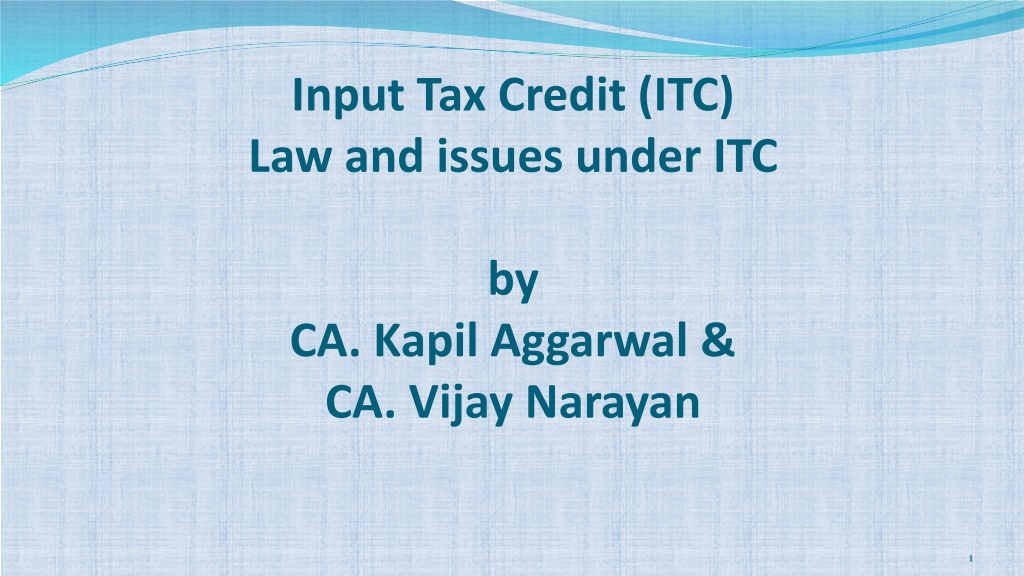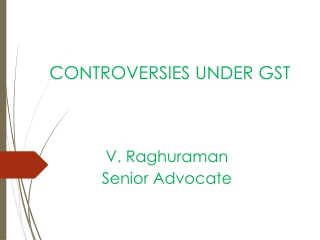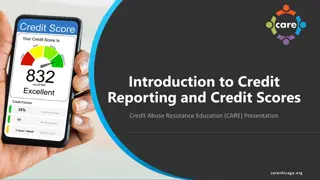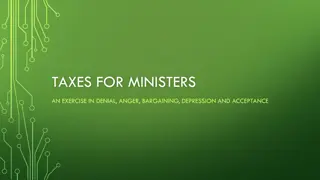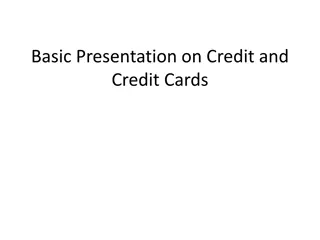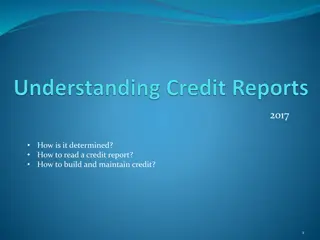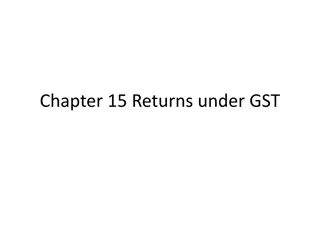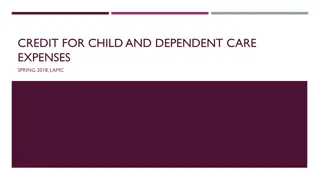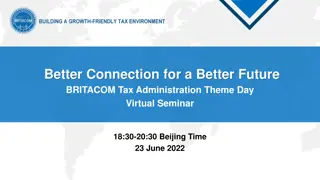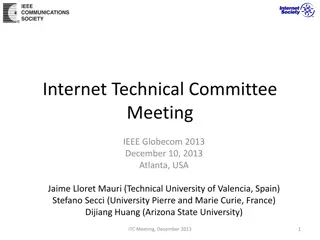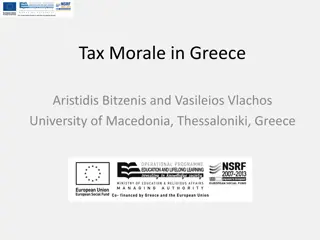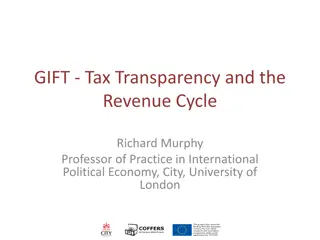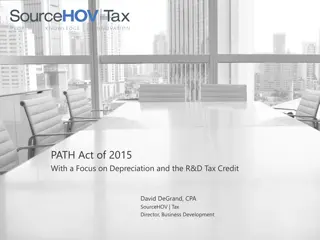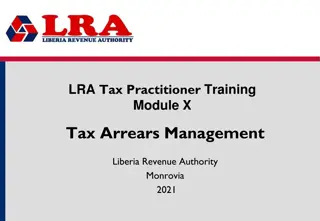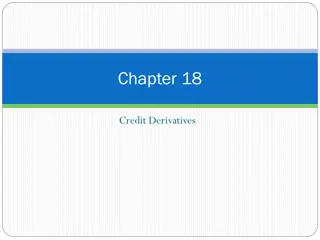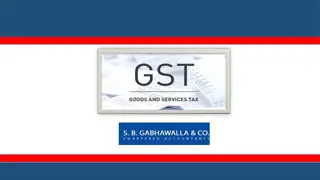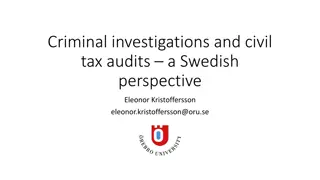Understanding Input Tax Credit (ITC) Law: Provisions and Issues
Dive into the world of Input Tax Credit (ITC) with a focus on basic provisions, eligibility criteria, conditions, apportionment of credit, and blocked credit as outlined in Sec-16, Sec 17 (1) to (4), and Sec 17 (5) of tax laws. Gain insights into how businesses can effectively utilize ITC while navigating potential challenges and compliance requirements.
Download Presentation

Please find below an Image/Link to download the presentation.
The content on the website is provided AS IS for your information and personal use only. It may not be sold, licensed, or shared on other websites without obtaining consent from the author. Download presentation by click this link. If you encounter any issues during the download, it is possible that the publisher has removed the file from their server.
E N D
Presentation Transcript
Input Tax Credit (ITC) Law and issues under ITC by CA. Kapil Aggarwal & CA. Vijay Narayan 1
Topics covered: Input Tax Credit basic provisions Eligibility and conditions Sec-16 Apportionment of credit 17 (1) to (4) Blocked Credit Sec 17 (5) Some more Issues under ITC ITC in special circumstances Sec-18 Job Work and ISD Open House - Questions 2
INPUT Input has been defined in section 2 (59) of the CGST Act. Input means ANY goods Other than capital goods Used or intended to be used By a supplier In the course or furtherance of business. goods has been defined in section 2 (52) of the CGST Act. Goods means Every kind of moveable property Other than money and securities But includes Actionable claim Growing crop, grass and things attached to or forming part of land which are agreed to be severed before supply or under a contract of supply 3
capital goods Capitalgoods has been defined in section 2 (52) of the CGST Act. Capital Goods means Goods The value of which is capitalised in the books of accounts of the person claiming ITC And which are used or intended to be used In the course or furtherance of business 4
Issue on availability of ITC [2018] 96 taxmann.com 292 (AAAR-MAHARASHTRA) APPELLATE AUTHORITY FOR ADVANCE RULING, MAHARASHTRA CMS Info Systems Ltd. Facts: Appellant is managing cash circulation through transporting cash from currency chest to bank branches - During course of providing cash management services, appellant purchases raw motor vehicles and after requisite fabrication get them converted to cash carry vans - Appellant also pays GST on fabrication - After proper usage, when vans cannot be used further, appellant sells those vans as scrap Question raised: Appellant seeks advance ruling on the availability of input tax credit of GST paid on purchase and fabrication of subject motor vehicles Decision/Ruling: Held No (against the assesee) as money being transported in cash carry vans can t be construed as "goods" in view of specific exclusion from the definition of goods. 5
Issue on availability of ITC [2020] 117 taxmann.com 318 (AAAR-MAHARASHTRA) APPELLATE AUTHORITY FOR ADVANCE RULING, MAHARASHTRA CMS Info Systems Ltd. Facts: Appellant is managing cash circulation through transporting cash from currency chest to bank branches - During course of providing cash management services, appellant purchases raw motor vehicles and after requisite fabrication get them converted to cash carry vans - Appellant also pays GST on fabrication - After proper usage, when vans cannot be used further, appellant sells those vans as scrap Question raised: Appellant seeks advance ruling on question as to availability of input tax credit of GST paid on purchase and fabrication of subject motor vehicles Decision/Ruling: Held Yes (in favour of the aseesee) as, on facts, what is being transported by appellant in cash carry vans is not money but goods for them as they cannot use such money for any purpose , whatsoever. 6
Input service Inputservice has been defined in section 2 (60) of the CGST Act. Input service means Any service Used or intended to be used By a supplier In the course or furtherance of business. service has been defined in section 2 (102) of the CGST Act. Service means Anything other than Goods, money and securities But includes Activities relating to use of money or its conversion by cash or by any other mode, from one form, currency terms or denomination, to another form, currency or denomination for which a separate consideration is charged Conclusion: Money and securities are neither goods, nor services. 7
INPUT TAX Inputtax has been defined in section 2 (62) of the CGST Act. Input tax in relation to a registered person, means The IGST /CGST/SGST/UTGST charged on any supply of goods or services or both made to him and includes The IGST charged on Import of Goods the tax payable under sub-section (3) and (4) of of section 9. (RCM) the tax payable under sub-section (3) and (4) of of section 5 of IGST the tax payable under sub-section (3) and (4) of of section 9 of SGST the tax payable under sub-section (3) and (4) of of section 7 of UGST But does not include the tax paid under composition levy 8
INPUT TAX CREDIT Input tax Credit has been defined in section 2 (63) of the CGST Act. Input tax Credit Means CREDIT of Input Tax. Burden of proof on Taxable Person availing ITC (Sec 155) : Where any person claims that he is eligible for ITC under this Act, the burden of proving such claim shall lie on such person. 9
Eligibility and conditions for availing Credit Sec-16 (1) to (4) and Rule 36 and 37 10
Eligibility for Taking ITC Section 16 (1) Section 16 (1): Eligibility and conditions for taking ITC Every registered taxable person shall be entitled to credit of Input Tax charged on any supply of goods or services or both to him which are used or intended to be used in the course or furtherance of his business and the said amount shall be credited to the electronic credit ledger of such person. conditions and restrictions on taking ITC prescribed in Rules 11
Conditions for availingITC Section 16(2) Possession of Invoice/ DN/tax paying document Received the goods or services or both Tax charged on such supply has been actually paid to the government either in cash or through utilization of input tax credit Furnishing of return u/s 39 First Proviso: Receipt of Goods in lots/ installments In such case, the registered person shall be entitled to take credit upon receipt of last lot or installment. Explanation to Sec 16 (2) (b): Deemed receipt of goods/services Where goods are delivered by the supplier to a recipient or any other person on the direction of such registered person, whether acting as an agent or otherwise, before or during movement of goods, either by way transfer of documents of the title to goods or otherwise Where the services are provided by the supplier to any person on the direction of and on account of such registered person. 12
Documentary Requirement and Conditions of ITC (RULE 36(1) & (2)) Rule 36 (1): The ITC shall be availed by a registered person ( incl. ISD), on the basis of any of the following documents, namely:- (a) an invoice issued by the supplier of goods or services or both in accordance with section 31; (b) a debit note issued by a supplier in accordance with the provisions of section 34; (c) a bill of entry; (d) an invoice issued in accordance with the provisions of Sec 31(3)(f) (Reverse charge invoice); (e) An ISD invoice/ credit note or any document issued by an ISD in accordance with the provisions of section 54 (1) Rule 36 (2): Such Documents should contain all the applicable particulars as specified under Chapter VI. Provided that if the said document does not contain all the details but contains The amount of tax charged Description of goods/services Total value of supply of goods/services GSTIN of the supplier and recipient Place of supply in case of inter-state supply ITC may be availed by the registered person. 13
Conditions for availingITC Section 16(2) Second Proviso read with rule 37: non-payment of value of supply along with tax payable thereon within 180 days from the date of issuance of invoice: In such a case, the registered person shall furnish the details of such supply, the amount of value not paid and the amount of ITC availed of proportionate to such amount not paid in Form GSTR-2 for the month immediately following the period of said 180 days and such proportionate amount of ITC shall be added to the output tax liability of the registered person in the said month. along with interest at the rate notified u/s 50(1) from the date of availing credit till the date when the said amount added to output tax liability is paid. Third proviso: recipient shall be entitled to avail the credit of input tax upon payment made by him of the amount towards value of goods/services along with tax payable thereon. Rule 37(4): time limit of sec 16 (4) (September or Annual return) shall not apply to re- availment of said credit. 14
Conditions for availingITC Section 16 Rule 37 (1): Deemed payment cases: Schedule I supplies made without consideration Where any amount added to value u/s 15 (2) (b) (being supplier liability met by recipient) 15
[2019] 105 taxmann.com 143 (AAR-WEST BENGAL) AUTHORITY FOR ADVANCE RULINGS, WEST BENGAL Senco Gold Ltd. FACTS :- The applicant was engaged in the manufacturing and retailing of jewellery and articles made of gold, silver, platinum, diamonds and other precious stones. Apart from his own retail stores, the applicant also maintained a network of franchisee- operated stores. He granted such a franchisee the right and license to operate a showroom and to use, in connection therewith, certain Proprietary Marks and System in accordance with a Franchise Agreement (hereinafter the Agreement). The applicant raised tax invoices on the Franchisee for the supply of jewellery and other articles and also for Franchise Support Services in terms of the Agreement periodically. On its part, the Franchisee also raised tax invoices on the applicant for the supply of old gold, silver etc., received from the customers. The applicant intends to settle the mutual debts through book adjustments and seeks an advance ruling on whether the input tax credit is admissible when he settles through book adjustment the debt created on inward supplies from the Franchisee. 16
[2019] 105 taxmann.com 143 (AAR-WEST BENGAL) AUTHORITY FOR ADVANCE RULINGS, WEST BENGAL Senco Gold Ltd. HELD :- In the present context, 'consideration', as defined under section 2(31), provides the scope and ambit for modes of payment. It includes, in relation to the supply of goods or services, any payment, made or to be made, whether in money or otherwise, and also the monetary value of any act or forbearance. This definition of 'consideration' cast the net so wide that almost no form of payment is excluded. For example, a mix of money and monetary value of the goods offered together with it is a valid 'consideration'. Similarly, if the payee owes the payer a debt, and accepts a reduction in such a debt liability as a valid form of payment, that should also be regarded as a valid 'consideration' for a supply. In other words, reduction in book debt (an asset in the payer's books of account) is a valid 'consideration In view of the foregoing, it is ruled that the applicant can pay the consideration for inward supplies by way of setting off book debt. The GST Act and rules made thereunder does not restrict the recipient from claiming the input tax credit when consideration is paid through book adjustment, subject to the conditions and restrictions as maybe prescribed and in the manner specified in sections 16 and 49 of the GST Act. 17
Conditions for availingITC Section 16 Section 16 (3): Depreciation or ITC Where the registered person has claimed depreciation on Tax component of the cost of capital goods under IT Act 1961, The ITC on the said tax component shall not be allowed. Section 16 (4): Time limit to claim ITC: the end of the financial year to which such invoice/ DN pertains or furnishing of relevant Annual Return, whichever is earlier. Any registered person shall not be entitled to take credit in respect of any invoice/DN after the Due date of furnishing the return U/S 39 for the month of September following 18
Conditions for availingITC Section 16 Rule 36 (3): Demand cases No ITC shall be availed In respect of of any tax That has been paid in pursuance of any order where any demand has been confirmed on account of any fraud, willful misstatement or suppression of facts. Rule 36 (4): 10% Limit on ITC not corroborated by uploaded invoices of suppliers: suppliers u/s 37 (1) Shall not exceed 10% of the eligible credit available in respect of invoices or debit notes the details of which have been uploaded by the suppliers u/s 37 (1) ITC to be availed by a registered person In respect of invoices or debit notes, the details of which have not been uploaded by and Sep 2020 return shall be filed with cumulative adjustment of ITC for the said months. Provided that the said condition for Feb 2020 to August, 2020 shall apply cumulatively 19
Apportionment of Credit Sec-17 (1) to (4) and Rule 42 20
Apportionment of Credit Section 17 (1): Where the goods/services are used by the registered person partly for the purpose of any business and partly for other purposes, the amount of credit shall be restricted to So much of the input tax as is attributable to the purposes of his business. Section 17 (2): Where the goods/services are used by the registered person partly for effecting taxable supplies (including zero rated) and partly for effecting exempt supplies, the amount of credit shall be restricted to So much of the input tax as is attributable to the said taxable supplies (including zero rated). 21
Apportionment of Credit Section 17 (3): The value of exempt supply under sec 17 (2) shall be such as may be prescribed and shall include supplies on which the recipient is liable to pay tax on RCM basis, Transaction in securities, Sale of land and, subject to clause (b) of para 5 of Schedule II, sale of building Explanation: For the purposes of this sub-section the expression value of exempt supply shall not include the value of activities/ transactions specified in Schedule III, except those specified in para 5 of schedule III. 22
Apportionment of Credit Rule 42 Steps in calculation of eligible credit: Step 1: Identify input tax attributable to input/input services intended to be used exclusively for the purposes other than business (T1) Step2: Identify input tax attributable to input/input services intended to be used exclusively for effecting exempt supplies (T2) Step3: Identify Blocked credit u/s 17 (5) (T3) Step4: Identify input tax attributable to input/input services intended to be used exclusively for effecting taxable supplies (including zero rated) (T4) Step5: Calculate Common Credit (C) Common Credit (C) = Total Credit (T) (T1 + T2 + T3 + T4) 23
Apportionment of Credit Rule 42 Steps in calculation of eligible credit: Step 6: Calculate ITC attributable to exempt supplies out of common credit (D1) = Common Credit * E/F Where E is exempt supplies during the tax period, F is total turnover in the State of the registered person during the tax period. For Real Estate sector: Value of E and F shall be calculated for each project separately. E = exempted apartments carpet Area + Identified apartments carpet area to be sold after completion certificate (CC) or first occupation, whichever is earlier F = aggregate carpet area of apartments in the project 24
Apportionment of Credit Rule 42 Steps in calculation of eligible credit: No turnover cases: Where the registered person does not have any turnover during a tax period, value of E and F shall be calculated by taking the previous period values when values of E and F are available. Step 7: Calculate ITC attributable to non- business purpose out of common credit (D2) = 5% of Common Credit, only where common inputs are used partly for business and partly for non-business purposes. Step 8: Calculate Eligible common credit = Common Credit (D1 + D2) Reversal Required: D1 and D2 to be reversed monthly through GSTR-3B or GST DRC-03 form. Such reversal shall be separately for IGST, CGST and SGST. 25
Apportionment of Credit Rule 42 Steps in calculation of eligible credit: Yearly final calculations of reversals (D1 and D2) based on yearly figures of turnover: If revised calculations exceed the monthly ones reverse the balance in 3B or DRC-3, not later than Sep month following the FY along with interest u/s 50 (1) from April of succeeding year till date of payment If revised calculations are lesser than the monthly ones Avail of balance ITC in 3B, not later than Sep month following the FY 26
Apportionment of Credit Rule 42 Steps in calculation of eligible credit: For Real Estate projects: Final calculations of reversals (D1 and D2) upon completion of the project/first occupation : Such final calculations to be made for a period from commencement of project/ 1st July 2017 to completion / first occupation of project, whichever is earlier. Such final calculations to be made before the due date for furnishing the return for sep month following the end of FY in which completion/ first occupation of the project takes place. If revised calculations exceed the monthly ones reverse the balance in 3B or DRC-3, not later than the said Sep month along with interest u/s 50 (1) from April of said year till date of payment 27
Apportionment of Credit Rule 42 Steps in calculation of eligible credit: If revised calculations are lesser than the monthly ones Avail of balance ITC in 3B, not later than the said Sep month. E = exempted apartments carpet Area + Unbooked apartments carpet area till the date of issuance of completion certificate (CC) or first occupation, whichever is earlier F = aggregate carpet area of apartments in the project ITC common to more than one pr0ject to be assigned to each project on a reasonable basis and thereafter credit reversal calculations to be made. 28
INPUT TAX NON-BUSINESS BUSINESS WHOLLY TAXABLE SUPPLY PARTLY TAXABLE SUPPLY PARTLY EXEMPT SUPPLY WHOLLY EMEMPT SUPPLY CLAIMABLE NON-CLAIMABLE 29
Issues under Apportionment [2020] 117 taxmann.com 475 (AAAR-MAHARASHTRA) APPELLATE AUTHORITY FOR ADVANCE RULING Ordnance Factory Facts: appellant was an organization manufacturing propellants and commercial explosives, a unit of Ordnance Factories Board functioning under Department of Defence Production and Supply of Ministry of Defence, Government of India and all its activities including administrative, executive etc. were carried out for and on behalf of President of India Question raised: Whether therefore, no ITC is available against expenditure related to maintenance and upkeep of guest houses maintained by appellant in terms of provision of section 17(2) 30
Issues under Apportionment [2020] 117 taxmann.com 475 (AAAR-MAHARASHTRA) APPELLATE AUTHORITY FOR ADVANCE RULING Ordnance Factory Decision/Ruling: Held Yes (Against the aseesee) it was to be held that appellant was nothing but 'Central Government' in accordance with provision of section 2(53) read with clause(8) of section 3 of General Clauses Act, read with Articles 53 and 77 of Constitution of India the appellant was charging rent/consideration from their employees for providing accommodation facility in residential colony maintained by it, activity of appellant was supply of residential services which was an exempt supply in terms of Sr. No. 12 of Notification No. 12/2017-Central Tax (Rate) dated 28-6-2017 therefore, any inputs or input services viz. expenditure related to maintenance and upkeep of guest houses will not be available to appellant for ITC in accordance with provision of section 17(2 ) 31
Issues under apportionment [2020] 117 taxmann.com 475 (AAAR-MAHARASHTRA) APPELLATE AUTHORITY FOR ADVANCE RULING Ordnance Factory Facts: appellant was an organization manufacturing propellants and commercial explosives, a unit of Ordnance Factories Board functioning under Department of Defence Production and Supply of Ministry of Defence, Government of India and all its activities including administrative, executive etc. were carried out for and on behalf of President of India Question raised: Whether any inputs or input services viz. Maintenance and upkeep activities relating to gardens, parks, playground, factory school for children of employees, hall for recreational activities, residential quarter buildings of employees, roads, footpaths, street lightings and other parts of estate area that are located outside the factory premises but within the factory estate will not be available to appellant for ITC in accordance with provision of section 17(2 ) 32
Issues under apportionment [2020] 117 taxmann.com 475 (AAAR-MAHARASHTRA) APPELLATE AUTHORITY FOR ADVANCE RULING Ordnance Factory Decision/Ruling: Held Yes (against the aseesee) it was to be held that appellant was nothing but 'Central Government' in accordance with provision of section 2(53) read with clause(8) of section 3 of General Clauses Act, read with Articles 53 and 77 of Constitution of India the appellant was charging rent/consideration from their employees for providing accommodation facility in residential colony maintained by it, activity of appellant was supply of residential services which was an exempt supply in terms of Sr. No. 12 of Notification No. 12/2017-Central Tax (Rate) dated 28-6-2017 therefore, any inputs or input services viz. Maintenance and upkeep activities relating to gardens, parks, playground, factory school for children of employees, hall for recreational activities, residential quarter buildings of employees, roads, footpaths, street lightings and other parts of estate area that are located outside the factory premises but within the factory estate will not be available to appellant for ITC in accordance with provision of section 17(2 ) 33
Apportionment of Credit Sec 17 (4) and Rule 38 Banking Company or financial institution including NBFCs: A banking company or financial institution Engaged in supplying services by way of accepting deposits, extending loans or advances Shall have the option To either comply with Sec 17 (2) i.e., proportionate reversal system Or avail of, every month, an amount equal to 50% of the eligible ITC on inputs, capital goods and input services in that month and the rest shall lapse. ITC which can be claimed in second option = 50% of {Total ITC (ITC wrt non-business purposes + Blocked Credit u/s 17 (5)+ Branch transfer cases)}+100% of ITC wrt branch transfers 50% restriction shall not apply for same PAN number cases i.e., branch transfers. Option once exercised can t be withdrawn during the remaining part of FY 34
Blocked Credit Sec-17 (5) 35
Blocked Credit Sec 17 (5) Notwithstanding anything contained in section 16 (1) and sec 18 (1), ITC shall not be available in respect of the following: - clause (a) , (aa) and (ab) Motor vehicles for transportation of persons having approved seating capacity of upto 13 persons (clause a) Vessels and aircraft (clause aa) Services of general insurance, servicing, repair and maintenance of motor vehicle, vessel or aircraft referred to in (a) and (aa) (clause ab) Exceptions: Exceptions: Exceptions: 1. Further supply 1. Further supply of such motor vehicles 1. Further supply of such vessels or aircraft 2. Transportation of passengers 2. Transportation of passengers 2. Transportation of passengers 3. Imparting training 3. Imparting training on driving such motor vehicles 3. Imparting training on navigating/ flying 4. Transportation of goods 4. Transportation of goods by vessel or aircraft 5. Manufacturer of motor vehicle/vessel/aircraft 6. General insurer in respect of motor vehicle/vessel/ aircraft insured by him 36
Blocked Credit Sec 17 (5) Notwithstanding anything contained in section 16 (1) and sec 18 (1), ITC shall not be available in respect of the following: - clause (b) Food and beverage, outdoor catering Life insurance, health insurance Renting/ leasing/ hiring of motor vehicle/vessel/aircraft referred to in (a) and (aa) Health services Beauty treatment, cosmetic and plastic surgery Membership of club, health and fitness centre Travel benefits extended to employees on vacation such as LTC Exceptions: Exceptions: 1. Legal obligation on employer to provide the same to its employees under any law for the time being in force 1. Legal obligation on employer to provide the same to its employees under any law for the time being in force 2. Used for making same category outward supply of goods/services or as an element of a taxable composite or mixed supply 3. For renting/ leasing/ hiring of motor vehicle, vessel/ aircraft purposes specified in clause (a) and (aa). 37
Blocked Credit Sec 17 (5) Notwithstanding anything contained in section 16 (1) and sec 18 (1), ITC shall not be available in respect of the following: - clause (c) and (d) Work contract services when supplied for construction of an immovable property (other than P & M) Goods/ services received by a taxable person for construction of an immovable property (other than P & M) on his own account including when such goods/ services are used in the course or furtherance of business Exceptions: 1. Where it is an input service for further supply of works contract service Explanation for clause c and d: C0nstrcution includes re-construction, renovation, additions or alteration or repairs to the extent of capitalization. Plant and machinery means apparatus, equipment and machinery fixed to earth by foundation or structural support that are used for making outward supply of goods/ services and includes such foundation and structural support but excludes: (i) land, building or any other civil structures (ii) Telecommunication towers (iii) Pipelines laid outside the factory premises 38
Blocked Credit Sec 17 (5) Notwithstanding anything contained in section 16 (1) and sec 18 (1), ITC shall not be available in respect of the following: - clause (c) and (d) e) Goods/ services on which tax has been paid under sec 10 i.e., composition levy f) Goods/ services used by non-resident taxable person except on goods imported by him g) goods/ services used for personal consumption h) Goods lost, stolen, destroyed, written off or disposed of by way of gift or free samples i) Any tax paid under section 74, 129 and 130 i.e, non-compliance cases 39
[2019] 110 taxmann.com 288 (AAR - KARNATAKA) AUTHORITY FOR ADVANCE RULINGS, KARNATAKA Wework India Management (P.) Ltd., FACTS :- The applicant is engaged in business of supplying shared workspace/office space to the freelancers, startups, small businesses and large enterprises. It procures goods and services from various contractors for fitting out of the workspaces and provides the said workspace on rent, to various companies and individuals as sharing work-spaces and it has paid GST on the inputs procured. QUESTION :- It seeks advance ruling in respect of issue whether input GST credit can be availed by the applicant on the detachable 14mm Engineered Wood with Oak top Wooden Flooring and detachable sliding and stacking glass partition which is movable in nature and capitalized as 'furniture and fixture', and is not capitalized as 'immovable property'? 40
[2019] 110 taxmann.com 288 (AAR - KARNATAKA) AUTHORITY FOR ADVANCE RULINGS, KARNATAKA Wework India Management (P.) Ltd., Contd . HELD :- The detachable sliding and stacking glass partition are fixed to the building to create the office spaces. There cannot be office space unless these are fixed and, hence, it can be said to be permanently fastened to the building. Hence, the fixing of sliding and stacking glass partitions amounts to addition or alteration to an immovable property and, hence, are used for the construction of an immovable property and input tax credit shall not be available on same. The wooden flooring in this case can be easily detached and reused. Also the wooden flooring which is detachable can be removed and replaced without affecting the office space. Further, there is no permanence involved in this fastening nor any damage is done to the property, either to the building or to the wooden flooring at the time of detachment of this flooring and, hence, would not be covered under 'construction of immovable property'. Hence, input tax credit relating to detachable 14mm Engineered wood with Oak top Wooden flooring is not restricted under section 17(5) 41
116 taxmann.com 736 (AAAR-KARNATAKA) M/s Wework India Management Private Limited ISSUE :- INPUT TAX CREDIT ON DETACHABLE SLIDINGS AND STACKABLE GLASS PARTITION Lower authority denied credit -- saying that these are fixed to building to create office space and amounts to immovable property. Rational by Appellate Authority The General Clauses Act, 1987 defines "immovable property" as to include land, benefits to arise out of land, and things attached to the earth, or permanently fastened to anything attached to the earth. Attached to Earth is defined in Section 3 of Transfer of Property Act as meaning (a) rooted in the earth , as in the case of tree and shrubs ; (b) imbedded in the earth, as in the case of walls and buildings ; or ( c) attached to what is so embedded for the permanent beneficial enjoyment of that to which it is attached. To ascertain whether the item is permanently attached to earth, many courts have used consistently two fold test (1) The extent of annexation and (2) The object of annexation. 42
116 taxmann.com 736 (AAAR-KARNATAKA) M/s Wework India Management Private Limited Contd .. The object of annexation test lays down that where a movable property gets annexed with an immovable property, if the intent of annexation is permanent beneficial enjoyment of immovable property , then the fixtures becomes an immovable property. if the intent of annexation is the beneficial enjoyment of movable property , then the property still remains movable. DECISION :- Applying the above test, the Authority finds that the glass partitions are not Permanent and not embedded to earth. They can dismantled without demolishing the civil structure. There fore DETACHABLE SLIDINGS AND STACKABLE GLASS PARTITION do not qualify as immovable property and credit allowed. 43
[2019] 105 taxmann.com 324 (Orissa) HIGH COURT OF ORISSA Safari Retreats (P.) Ltd. v. Chief Commissioner of CGST FACTS The petitioners were mainly carrying on business activity of constructing shopping malls for the purpose of letting out of the same to numerous tenants and lessees. The petitioner having accumulated input Credit of GST in respect of purchases of inputs in the form of goods and services was desirous of availing of the credit of input tax charged on the purchase/supply of goods and services which were consumed and used in the construction of the said shopping mall in order to utilise the said input credits to discharge and pay the CGST and OGST payable on the rentals received by the petitioner from the tenants of the said shopping mall and approached the revenue authorities in this regard. However, the petitioner was advised to deposit the CGST and OGST collected without taking input credit in view of restrictions placed as per section 17(5)(d) and was warned of penal consequences if it did not do so. The petitioners filed instant writ petition challenging the action of the opposite parties. 44
[2019] 105 taxmann.com 324 (Orissa) HIGH COURT OF ORISSA Safari Retreats (P.) Ltd. v. Chief Commissioner of CGST Cont . The sale of immovable property post issuance of completion certificate does not attract any levy of GST. Consequently, in such a situation, there is a break in the tax chain and, therefore, there is full justification for denial of input tax credit as, on the completion of the transaction, no GST would at all be payable and, therefore, no set-off of the input tax credit would be required or warranted or justified. But the position is totally different where the immovable property is constructed for the purpose of letting out the same, because, in that event, the tax chain is not broken and, on the contrary, the construction of the building will result in a fresh stream of GST revenues to the Exchequer on the rentals generated by the building. The denial of input tax credit in such a situation would be completely arbitrary, unjust and oppressive and would be directly opposed to the basic rationale of GST itself, which is to prevent the cascading effect of multi-stage taxation and the inevitable increase in costs which would have to be borne by the consumer at the end of the day. Further, the denial of the input tax credit in respect of a building which is meant and intended to be let out would amount to treat it as identical to a building which is meant and intended to be sold. 45
[2019] 105 taxmann.com 324 (Orissa) HIGH COURT OF ORISSA Safari Retreats (P.) Ltd. v. Chief Commissioner of CGST Cont . The treatment of these two different types of buildings as one for the purpose of GST is itself contrary to the basic principles regarding classification of subject-matter for the levy of tax and, therefore, violative of Article 14 of the Constitution. Such a classification also constitutes the treatment of assessees like the Petitioner on a totally different footing as compared with other assessees who have a continuous business and an unbroken tax chain like the Petitioner and grant of input tax credit to others while denying it to the Petitioner. Thus, the same is violative of the Petitioners' fundamental right to equality guaranteed by and under Article 14 of the Constitution, on this distinct and independent ground also. Further, such an interpretation of Section 17(5)(d) of both CGST and OGST Act leads to double taxation, i.e., firstly, on the inputs consumed in the construction of the building and secondly, on the rentals generated by the same building. It is also a settled principle of interpretation of tax statutes, that interpretation should be adopted which avoids or obviates double taxation. This principle is also directly applicable to the present case. It would also be violative of the Petitioners' fundamental right to carry on business under Article 19(1)(g) of the Constitution as it would impose a wholly unwarranted and unreasonable and arbitrary restriction which would render buildings now constructed for letting out uncompetitive, by imposing the burden of double taxation of GST on such buildings, i.e., firstly, on the inputs consumed in the construction and, thereafter, on the rentals generated by the building. 46
[2019] 105 taxmann.com 324 (Orissa) HIGH COURT OF ORISSA Safari Retreats (P.) Ltd. v. Chief Commissioner of CGST Cont . it is a well settled law that in constructing fiscal statute and in determining the liability of a subject to tax, one must have regard to the strict letter of law and no words can be added to a statute or read into it which are not there Legislature has also imposed another condition in Section 17(5) (d) of both the aforesaid Act which reads as when such goods or services or both are used in the course or furtherance of business' this condition is applicable only when the immovable property is constructed 'on his own account' as appearing in that sections, which means that the taxable person on whose account the said immovable property is constructed. The said condition cannot be applied to any other cases far less when the construction of the immovable property is intended for letting out. If the benefit of taking credit of input tax under Section 16 of the Act is denied to the petitioner by invoking Section 17(5) (d) of the CGST Act and OGST Act, in that event, the very object of enacting CGST Act and OGST Act for reducing the cascading effect of various indirect taxes and reduction of multiplicity, of indirect taxes, will be frustrated even when the business of the petitioner is a continuous one and there is no break at any point of time. It is a well settled law that the interpretation which defeat the very intention of the legislature should be avoided and that interpretation which advances the legislative intent will have to be accepted. Finally Held ITC allowed in the present case. 47
[2020] 116 taxmann.com 203 (AAR - KARNATAKA) AUTHORITY FOR ADVANCE RULINGS Vikram Traders Where applicant engaged in business of renting of immovable property and discharging GST on rental income is seeking advance ruling on its eligibility to claim input tax credit on inputs attributable to renting of immovable property, application is to be rejected as issue is pending in another case before Supreme Court of India and, hence, is sub-judice. 48
[2020] 113 taxmann.com 56 (AAR - TAMILNADU) AUTHORITY FOR ADVANCE RULINGS, TAMILNADU Sree Varalakshmi Mahaal LLP FACTS :- The applicant has constructed a marriage hall on its own account for letting out to customers for occasions on which it charges GST. It has received various materials such as cement, steel, wood, fittings, etc. along with various services from labour, architect, etc. which have been used to construct the marriage hall. QUESTION :- Whether input tax credit against purchases of materials and services used for construction of building (constructed by it) can be claimed and utilized to pay GST on the outward supply of services of renting of the building. 49
[2020] 113 taxmann.com 56 (AAR - TAMILNADU) AUTHORITY FOR ADVANCE RULINGS, TAMILNADU Sree Varalakshmi Mahaal LLP HELD:- No input tax credit is available against any goods or services received by the applicant for construction of the marriage hall on its own account even if used in course or furtherance of its business of renting the place. 50
